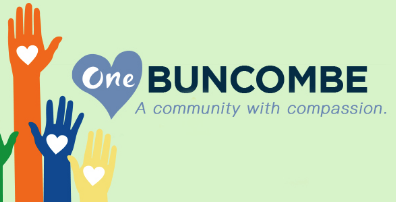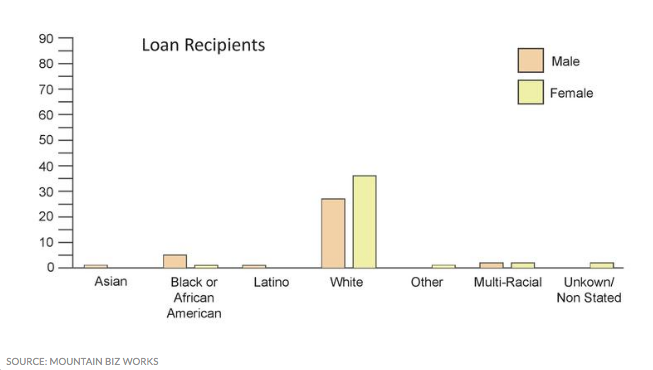I’m oscillating between intense heartache and slithers of hope. We have a rare opportunity to do things differently and yet I see so many leaders (and neighbors) making decisions that lead to the same harmful outcomes. White supremacy culture is tricky. It changes shape and hides behind policies and protocols. But it’s always consistent in its outcomes — they are better for White people. For centuries in this country we have made choices and created structures that work better for White people (particularly those with power, but that’s a different topic).
Covid-19 is requiring us to change how so many things operate. We have the opportunity to be creative, courageous, and take a stand for actions that actually make life better for folks. In these early stages, I’m heartbroken to see people and organizations who claim that racial equity and human dignity is a priority, making decisions in the same ways that result in significant inequities that people suffer under. It’s hard to move huge systems. It’s not as hard to create something new in a different way.

The One Buncombe fund is a prime example. This money appeared out of nowhere. The purpose was immediate relief grants for individuals and loans for small businesses. City of Asheville and Buncombe County gave a combined $300,000, I believe. The fund received contributions from 1066 other contributors to raise $1.3 million dollars. I know that at least 4 of the lead sponsors have racial equity as a priority. This was a chance to put that priority into practice.
But White supremacy culture is sneaky. So folks in leadership perceived that they were doing a good job because 20% of the grants that went to individuals went to Black and Latinx people who together make up 13% of the population. They did accomplish fairness and equality. However, if this money is supposed to be emergency relief, the folks who most necessitate financial support will be those living closer to the poverty line, not the entire county at large. According to the census, in the last 12 months, 41.9% of people living below the poverty line in Buncombe County were African Americans and Latinx folks. So for this emergency relief money to have been distributed with a racial equity lens, at least 42% of individual grants would have gone to Black and Brown folks. This didn’t happen. How can we work together to make sure our institutions set future goals that are about equity?
For business loans, which is what this article is about, white supremacy culture shows up in many ways also. It is what shapes how data is categorized and the stories the data tells. The category discussed is “women and minority owned businesses.” This allows Mountain Bizworks to say that more than half of the loans made from the One Buncombe fund went to women and minority owned businesses. “But a closer look at the category “women and minorities” shows that 70 percent of those loans went to white women. One loan went to a Latino male business owner. Six went to African American business owners, one of them a woman. But zero Latina women business owners have so far received funding.”


Decision-makers also claim that only 10% of small businesses in Buncombe County are owned by People of Color and so the fact that they received 10% of the available funds means “there’s been pretty good outreach.” But an equity lens would say, due to historical and institutional racism and the advantages given to White people, Black and Brown owned businesses make up only 10% of the small businesses. Therefore, in this time of crisis, we must be doing everything we can to make sure every one of those businesses stays open
Mountain Bizworks now has the control of $5 million from the Occupancy Tax/TDA money to be given as small business grants (application window open until May 31. Spanish version here). Will they distribute this emergency relief money in more equitable ways? Or will they keep using general county demographics as a measurement and lumping White women in with People of Color? How are they supporting businesses of color to overcome any obstacles that could prevent them from accessing these funds? Who are they partnering with?
If this all agitates you as much as it does me, please get involved and advocate. Who do you know on the One Buncombe Fund Board, at Mountain Bizworks or on their Board, or anyone in decision-making positions? What criteria are they baking into all the new processes being created right now to INSURE that they aren’t perpetuating inequitable decisions and outcomes?
Here’s some questions you can ask:
- Were people most significantly impacted by the economic fall-out consulted in how this money was distributed?
- Did the governing board have members who could relate to the situation those applying for funds would be in? Were there small business owners who had to close their businesses and individuals who didn’t know where rent was coming from on the Board?
- Was the application process through Health and Human Services or Mountain Bizworks vetted by people who would be using it to determine if it was accessible or not?
- Were goals stated on the front end to determine what distribution of these funds and loans would look like using a racial equity lens?
- Who provided guidance for setting the above goals and implementing them?
- What is their process for assessing the success or mistakes in how this $1.3 million dollars was distributed? How is that information being rolled over into future decision-making?
- What silos are being broken down right now to share what’s working or not working in this unfamiliar time?
- What new collaborations are happening so that truly innovative and equitable solutions can be tried during this time?
In the article, the chair of the One Buncombe Fund says, “Does it meet the need in a pandemic? I’m sure it does not fully meet the need, but it was a really good effort.” Our community and the people who are suffering RIGHT NOW deserve more than really good efforts. And I believe we have the creative capacity in this town to do more. But will we actually? Thus my heartache. Writing this post, however, is because of my hope. My hope and prayer is that enough of us will rally against business as usual (that insures white supremacy culture and all its outcomes) and that we will be courageous and call on our leaders to be creative, try new things, and take steps forward in ways that can actually create different outcomes.
Ashley, thanks for this expression of your personal heartache which I think is also a form of collective heartache in this town. We did not apply for the One Buncombe fund because we felt like we had some resources available to us that others might not. It also looked like a mess of a process. We looked at the TDA grant that Mtn Bizworks is overseeing and it is a complete perpetuation of same old, same old. Because, though it can’t go to lodging businesses, it will only go to businesses that are hugely focused on bringing tourists to Asheville. Many businesses can focus both on tourism and local interest, but it has become harder and harder. The huge unsustainable increase in tourism we’ve seen (before COVID) made it harder and harder to actually serve the needs of locals. And to pay rent as a small business you basically felt like you had to bow down to the tourists to pay your bills and keep your doors open and do what you really wanted to do which is usually serving and meeting needs of locals. This TDA grant will perpetuate more of the same. Oh, and fyi, even if a business is equally co-owned by a woman and a man (like our mom & mop) it can be considered a “woman-owned” business. So that just brings more money to white women and less to black and brown folks.